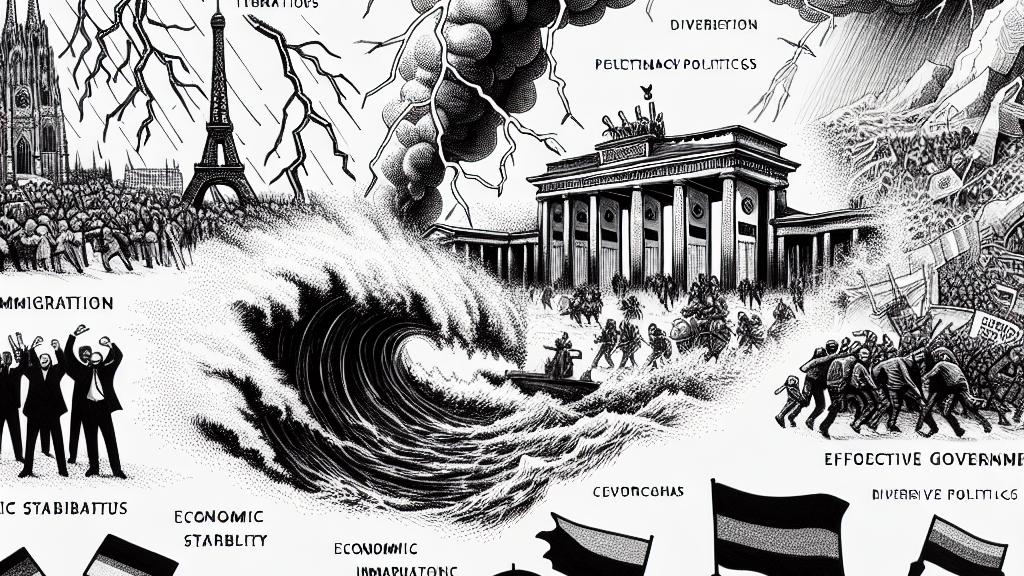Germany Faces a Far-Right Storm: Scholz Sounds the Alarm!
Overview
- Chancellor Olaf Scholz raises alarms about the formidable rise of the far-right Alternative for Germany (AfD) party in recent state elections.
- The AfD's historic victories represent a significant turning point in post-WWII Germany, prompting urgent calls for cohesive action among mainstream political parties.
- As the nation approaches national elections, the implications of the AfD's ascendance threaten to reshape Germany's social and political landscape.

A Historic Shift in German Politics
The political landscape in Germany is undergoing a seismic shift, illustrated by the dramatic successes of the far-right Alternative for Germany (AfD) party in the latest state elections. This marks the first time since World War II that a far-right party has achieved victories in state legislatures, with notable wins in Thuringia and Saxony. These elections underscore a significant public backlash against mainstream political parties, driven by growing dissatisfaction regarding issues such as immigration, economic stability, and perceptions of government inefficacy. Chancellor Olaf Scholz, leader of the center-left Social Democrats (SPD), characterized these election outcomes as 'bitter,' emphasizing the urgency for mainstream parties to unify against the far-right to prevent an erosion of democratic values and principles.
Implications of Far-Right Gains
The rise of the AfD introduces profound implications for Germany's political framework. Although the party has not yet secured the coalition support necessary to govern, its substantial representation in the legislatures bestows upon it the power to disrupt vital governmental functions, particularly in decisions requiring supermajorities, such as judicial appointments and security policy enactments. Scholz highlighted that the AfD's increasing prominence threatens to destabilize Germany economically, exacerbate social divisions, and tarnish the nation's reputation on the global stage. This alarm resonates across varied political spectrums, with leaders rallying to reinforce their commitment to democratic ideals and urging proactive measures to counter the potential normalization of extremist rhetoric in the political discourse.
The Broader Context and Future Prospects
As Germany heads towards national elections, the ramifications of the AfD's current strength could catalyze significant shifts in political ideology and policy-making. The party's influence may compel traditional political factions to reassess their strategies on critical issues such as immigration reform and Germany's military involvement, particularly regarding its stance on Ukraine amid escalating tensions. Observers predict that the unfolding political climate could lead to intensified competition between parties, with rising support for the AfD highlighting a potential transformation in voter behavior and loyalties. Both Scholz and other political leaders are under pressure to respond effectively to these challenges, for any failure to robustly address the rise of the far-right might jeopardize the core democratic fabric of Germany and disrupt the nation's long-standing principles of unity, tolerance, and inclusion.

Loading...